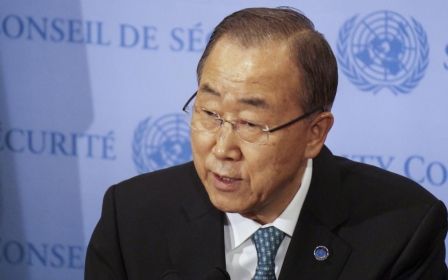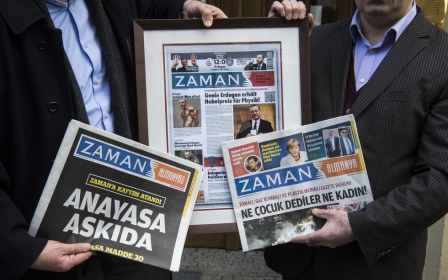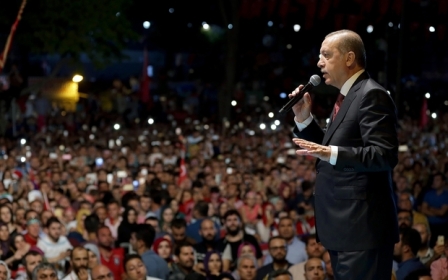Massive sackings begin under Turkey’s state of emergency

ISTANBUL, Turkey – Turkish media and the country’s armed forces were targeted by the government on Wednesday for the first time since a state of emergency was declared in the country on 20 July after a botched coup attempt five days earlier.
More than 100 top officers and hundreds from the lower ranks were dishonourably dismissed, marking the biggest purge of the Turkish armed forces since the formation of the Turkish Republic in 1923.
A decree published in the official gazette on Wednesday evening also announced the closure of scores of media outlets.
Based on available information, the breakdown of the dishonourable dismissals in the armed forces is:
- Army: 87 generals, 726 officers and 256 junior officers.
- Air Force: 30 generals, 314 officers and 117 officers.
- Navy: 32 admirals, 59 officers and 63 junior officers.
Turkey also closed more than 100 news outlets:
- 3 news agencies
- 16 TV stations
- 23 radio stations
- 45 newspapers
- 15 magazines
- 29 publishers and distributors
Many of the media outlets closed by this decree are local and regional publications, but prominent mainstream newspapers like the daily Taraf, which has a large circulation, were also included. Taraf came into prominence in the late 2000s as an anti-militarist newspaper focused on exposing the military's secretive elements.
Most of the evidence presented and spread through the media in this regard was later discovered to have been fabricated.
A government official previously said the media closures resulted from links between these organisations and their staff with Fetullah Gulen's Hizmet (service) movement.
Under the decree, the gendarmerie and coast guard have been wrested from military control and placed under the interior ministry, and 114 companies suspected of Gulen links (including the media outlets) have been shut.
Gulen, a reclusive Turkish Muslim preacher who lives in self-imposed exile in the United States, stands accused by Turkish authorities of being behind the failed coup attempt.
Gulen, a former ally of Turkish President Recep Tayyip Erdogan and his Justice and Development Party (AKP), became his arch foe in 2013 when alleged followers of Hizmet initiated a corruption probe against Erdogan and his close colleagues.
The state of emergency grants extraordinary powers to the government and any decree it issues carries the weight of law. It does need to be approved by a simple majority in parliament, which was granted on 21 July.
The emergency grants extraordinary powers to the interior ministry and governors. Search and arrest warrants are easier to obtain, detentions can last for 30 days and police have increased rights to conduct frisks.
Detainees can also be denied an audience with a lawyer.
This article is available in French on Middle East Eye French edition.
New MEE newsletter: Jerusalem Dispatch
Sign up to get the latest insights and analysis on Israel-Palestine, alongside Turkey Unpacked and other MEE newsletters
Middle East Eye delivers independent and unrivalled coverage and analysis of the Middle East, North Africa and beyond. To learn more about republishing this content and the associated fees, please fill out this form. More about MEE can be found here.




